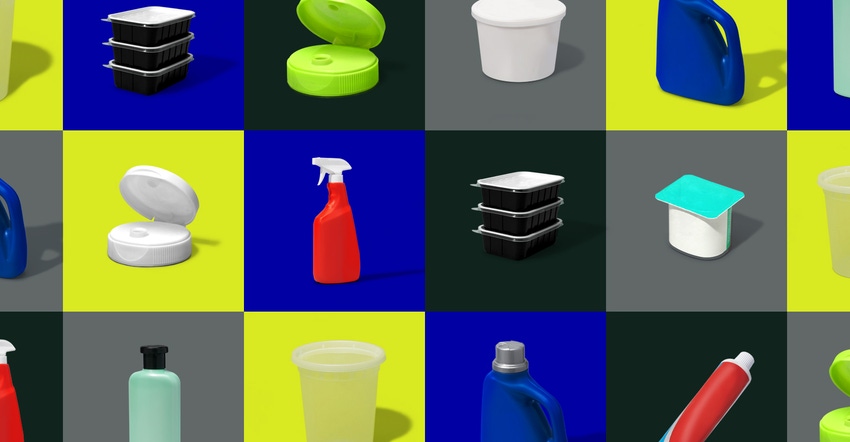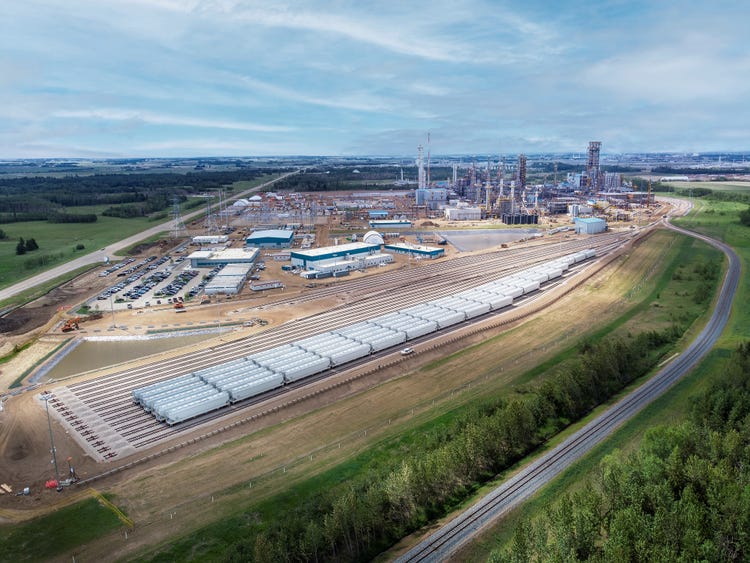New Polypropylene for a Stable, Sustainable Packaging Supply Chain
Heartland Polymers' sustainable plant and US logistics hub solve packaging supply and price volatility with new resins for films, closures, and containers.
January 27, 2023

Sponsored by Heartland Polymers
Yonas Kebede
Ongoing demand for polypropylene (PP) packaging is driven by the need for a secure, reliable source that can support the production needs of the market. Suppliers of resins for packaging converters face the dual challenge of ensuring cost-effective and stable supply while meeting growing demand for meeting sustainability goals.
Supply chain disruptions create unpredictability, which challenges purchasing, process planning and even the basic ability to operate. The causes are all too well known. They include the threat of annual extreme weather events in the Gulf Coast region and additional, unforeseen factors such as COVID-19 and the Russia-Ukraine war.
Constraints on PP and related raw material supplies “are leading to factory shutdowns, sharp price increases and production delays across a range of industries,” the CEO of a global supply chain risk management firm wrote in a 2021 Harvard Business Review article. Furthermore, disruptions result in market volatility, such as the 36 percent price increase in the global average price of polypropylene (PP) in 2021, per Statistica.
Fortunately, a diverse PP supply chain is now in place to mitigate this volatility and risk.

The new PP plant is brimming with the latest in sustainability, process technology, and supply chain tracking.
A new North American source of supply
A new source of PP resins entered the market in the summer of 2022 when Heartland Polymers began PP production at Inter Pipeline’s Heartland Petrochemical Complex in Alberta, Canada. It’s only the second PP plant to come online in a decade and is expected to produce of 575,000 tons of PP annually for the Canadian and US markets.
Today, resins are being produced for packaging materials in high demand, including:
• Compression and injection-molded caps and closures such as those used for soft drinks and hot-fill sports beverages; and any product using a connected, living-hinge closure to enhance end-use functionality and recyclability
• Biaxially Oriented Polypropylene (BOPP) films for packaging labels and packaging goods, such as snack food bags and stand-up pouch
• Thermoformed products for use in coffee cups, fountain cups, take-out containers, yogurt cups, and single-use coffee pods
A strategic US distribution network
While the Gulf Coast has been inseparable in the minds of many as the source of raw materials, operators are increasingly interested in alternative supply outside the region, especially now that Heartland’s US distribution network establishes a permanent storage-in-transit (SIT) facility in the Midwest US. Heartland’s vast rail network is capable of moving 1,600 rail cars from the Heartland production complex in Alberta, Canada, to ports and terminals across the continent.
Leveraging the blank slate of an industry start-up, this transportation network was designed and built from the ground up with a focus on reliability and the integration of technologies to support customers. For example, the installation of GPS units on each of the 1,600 rail cars provide real-time tracking for delivery schedules, allowing Heartland as well as its customers to track every shipment. Additionally, sensors on railcars allow the company to determine when hatches are open and monitor the load level and temperature inside each car.
Performing visual quality control on pellets following extrusion.
New technology for sustainable efficiency
Like its distribution network, process operations at the Heartland complex benefit from being designed and built from the ground up. Engineering innovations include cogeneration and residual heat recovery to generate steam for processing, reducing reliance on fossil fuels. Innovative air and glycol cooling systems for feedstock production reduce fresh-water make-up requirements by 80 percent, a total reduction of almost 1.5 million cubic metres of make-up water per year.
The processing facility employs the latest generation of engineering and automation technologies. Examples include Grace UNIPOL® for PP processing and UOP Oleflex™ for PDH processing, both of which offer world-class efficiency and sustainability. When the Heartland Polymers facility is fully integrated in 2023, PP production is projected to have a greenhouse gas (GHG) 65 percent lower than the global average and 35 percent lower compared to average North American PP facilities, according to an independent study commissioned by Inter Pipeline.
Sustainability statistics were confirmed in an independently conducted lifecycle assessment in 2020 and indicate that the company will reduce greenhouse gas (GHG) emissions at a level equivalent to removing an annual 217,000 passenger vehicles from roads each year. (For details, read Heartland’s + Impact Report 2021). By the end of 2023, Heartland will release measurement data to validate projections to further support reporting required by companies seeking to incorporate supply chain partner sustainability metrics in their own reporting practices.
Heartland’s sustainability goals extend past production and distribution, focusing on participation in industry initiatives including Operation Clean Sweep, the industry-wide sustainability initiative targeting zero plastic resin loss along with resource conservation in manufacturing and distribution; the Alliance to End Plastic Waste, which seeks to change the way people dispose of and recycle materials; and significant investments in localized research on environmental impacts as well as future uses for recycled plastics.
Major companies are evaluating and diversifying their PP supply to mitigate risk and ensure a stable source of supply. Heartland Polymers believes it can help fill this need. For more details on the Heartland facility and its commitment to a sustainable, resilient supply chain, read the white paper, Reliability matters: Heartland takes deliberate actions to address supply concerns.
About the author
 Yonas Kebede, Director of Sales and Marketing, Heartland Polymers, joined the company in 2019 to take part in building a modern-day polymer company from the ground up. Previously, he spent 18 years in sales of polyethylene and polypropylene for Quantum Chemical (now LyondellBasell). Yonas holds a B.S. in Engineering from Michigan State University and resides in Northern New Jersey. He can be reached at [email protected].
Yonas Kebede, Director of Sales and Marketing, Heartland Polymers, joined the company in 2019 to take part in building a modern-day polymer company from the ground up. Previously, he spent 18 years in sales of polyethylene and polypropylene for Quantum Chemical (now LyondellBasell). Yonas holds a B.S. in Engineering from Michigan State University and resides in Northern New Jersey. He can be reached at [email protected].
You May Also Like


